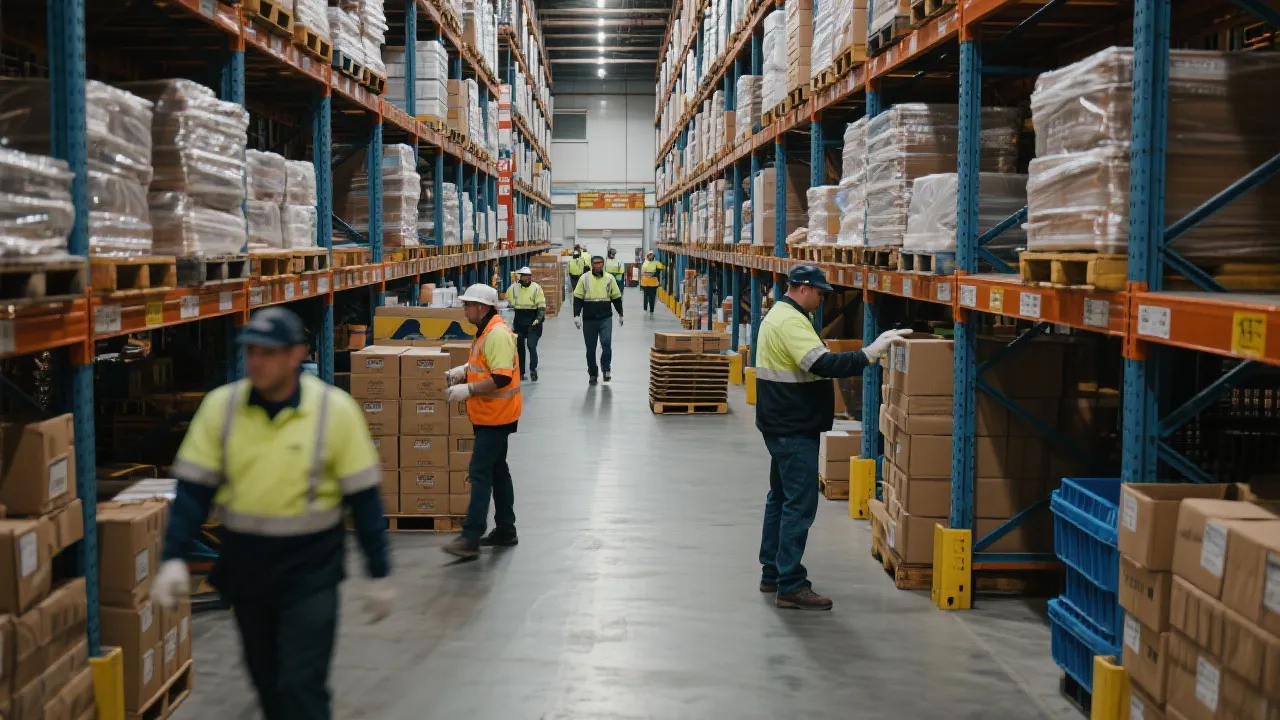A Pick Packer plays a crucial role in efficient warehouse operations, tasked with selecting items from stock and preparing them for dispatch. This article delves into the responsibilities, necessary skills, and industry insights related to the Pick Packer profession, providing a detailed understanding of the career path and its relevance in logistics and supply chain management.

The role of a Pick Packer is integral to maintaining the smooth operation of warehouses and distribution centers. In an era where timely delivery is crucial, Pick Packers ensure that items reach their destination promptly and efficiently. But what does being a Pick Packer entail? Let's dive into the details.
Pick Packers are responsible for selecting items from stock, packing them appropriately, and preparing the items for shipping. Their duties ensure that customers receive the correct products in excellent condition and on schedule. The responsibilities of a Pick Packer hinge on various essential tasks that impact the overall supply chain, from the moment an order is placed to the point it is delivered to the end customer.
To excel as a Pick Packer, individuals must possess a range of skills:
The evolution of e-commerce and logistic optimization has intensified the demand for skilled Pick Packers. As more consumers rely on online shopping, the necessity for proficient order fulfillers in warehouses continues to grow, making this a promising career choice. The landscape of warehousing and logistics is rapidly evolving, and it's essential to keep abreast of the latest trends to understand how they will shape the role of Pick Packers in the future.
As the warehousing sector modernizes, here are some key trends that are influencing the profession:
| Trends | Details |
|---|---|
| Automation Integration: | Emerging technologies are being integrated to assist in more efficient picking and packing processes. Automated systems and robotics are being implemented to help speed up these tasks, although human oversight remains crucial to ensure quality and accuracy. |
| Sustainable Practices: | There's a growing emphasis on using eco-friendly packing materials. Companies are seeking to reduce their carbon footprint, thereby insisting upon biodegradable, recyclable, and minimalistic packing solutions, and Pick Packers play a vital role in this shift. |
| Demand Fluctuation: | The surge in e-commerce orders highlights the critical need for Pick Packers during peak times. Events such as holiday seasons can lead to increased hiring and training for additional Pick Packers, reflecting the variable nature of demand in logistics. |
| Focus on Workforce Well-being: | Employers are increasingly recognizing the importance of worker satisfaction and well-being as it directly impacts productivity. Providing ergonomic equipment, health resources, and flexible scheduling is becoming more prevalent to support Pick Packers' physical and mental health. |
| Skill Development Initiatives: | Organizations are investing in training and development programs to upskill Pick Packers. This not only enhances employee performance but also opens pathways for career advancement within the company. |
A career as a Pick Packer does not typically require formal education beyond secondary school, but certain conditions and requirements need to be met. The basic qualifications often hinge on a combination of education, certifications, and hands-on experience that prepares individuals for the demands of the role.
What are the hours like for a Pick Packer? Many Pick Packers work shifts, including evenings or weekends, reflecting the demanding nature of warehousing operations. Flexibility in availability is often an asset, as it allows workers to adapt to fluctuating operational needs.
Is there room for advancement in this role? Yes, experienced Pick Packers can move into supervisory roles or specialize in areas like inventory management. Some may even transition into logistics planning or management positions, given their on-the-ground knowledge of warehouse operations.
What companies typically hire Pick Packers? Large retailers, third-party logistics providers, and distribution centers are the primary employers. Many industries, from grocery chains to e-commerce giants, rely on efficient packing teams to fulfill customer orders and maintain supply chain integrity.
What are the common challenges faced by Pick Packers? Pick Packers may confront challenges such as high workloads during peak seasons, maintaining accuracy in fast-paced environments, and dealing with safety hazards. Proper training and safety protocols help mitigate these issues, but the reality of the job entails navigating these stressors effectively.
How does technology impact the role of a Pick Packer? Technology streamlines many aspects of the picking and packing process. Innovations such as automated picking systems, warehouse management software, and mobile scanning devices improve efficiency and accuracy, allowing Pick Packers to focus more on quality control and less on repetitive tasks.
In conclusion, a career as a Pick Packer is both challenging and rewarding, poised for growth with the rise of global logistics demands. Understanding the skills and industry trends helps aspirants position themselves effectively in this ever-evolving field. As the future unfolds, those entering this profession can expect to engage with emerging technologies, be part of sustainable practices, and experience a career trajectory filled with potential and opportunities for advancement.